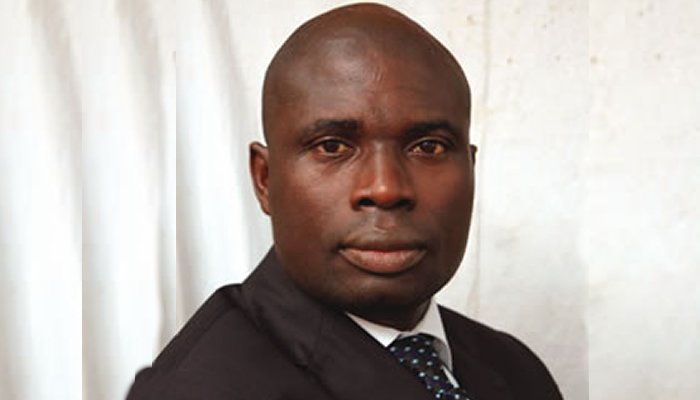
This piece illustrates how our realities are different from the sentiments we often express regarding how nations relate on the international stage. My first example has been Afghanistan. It was over this Asian nation that the West was criticised at the time the Taliban took over the government for the second time. In Prime Minister Boris Johnson’s practical view though, Western nations couldn’t have dealt with that country differently.
I’ve pointed out that Afghanistan is a nation where national politicians get things done by sometimes depending on ultra-conservative tribal leaders. Many of these tribal leaders hold extremely ancient view of everything; from education for girls, citizens expressing themselves, women working in offices etc. The government too isn’t running without checking with the interpreters of state religion. In that kind of nation, Westerners have a challenge finding their feet. They do in any country that shares the same characteristics with Afghanistan. When the Taliban returned to power and began to implement stricter religious codes, the West, therefore, stayed out and watched.
Sometimes, what foreign NGOs collectively do in some countries on humanitarian grounds is relatively significant compared with what foreign nations directly offer. This was the case in Afghanistan. When the Taliban happened, funds from most western NGOs dried up. This was largely due to the programmes they funded which the Taliban tampered with. This was the condition of Afghanistan that some in the West criticised Johnson and other Western leaders over. Such criticisms aren’t realistic and I stated this at length in the past (“The UK defence minister can’t know 2+2”, The PUNCH, Sept. 10, 2021).
Of late, there were criticisms about the visit the President of the United States, John Biden, made to Saudi Arabia. The main grouse is that this is a nation whose crown prince is accused of being responsible for the killing of the Saudi journalist, Jamal Kashoggi. I state here that such a criticism ignores the reality of our world ‘as it is.’ Now, I condemn in the strongest of terms the killing of Kashoggi, a fellow journalist. Those responsible should be prosecuted. The reality of our world though, and here I explain like any dispassionate political scientist would, is that punishment often gets served more when those accused of a condemnable act aren’t the controller of the machinery of a state. When the accused aren’t in a position to either hold on to or release what other powerful entities on the global stage need; when the accused don’t have huge resources needed by our world under their control.
Was I surprised at Biden’s trip and the new friendship he had struck with the Saudi leadership? It would take a person who hasn’t paid close attention to international affairs to be surprised. In fact, from the time everyone in Washington DC condemned the Saudi leadership over Kashoggi, I was already waiting for the day the US would need the help of the Saudis. When it does, it will court that nation as usual. And the West would always need to court the Saudis. They do because they need the help of that largely pro-West Arab nation in the Middle East. They do because they’re driven by their national interest, not by the affair concerning a journalist who unfortunately lost his life. That’s our world ‘as it is’, one that the international relations realist, Hans Morgenthau, theorised so eloquently about.
Saudi Arabia is in a part of the world which features aren’t significantly different from those obtainable in Afghanistan. There’s the same state religion, the same conservative view of things, and the powers of the religious leaders. In Saudi Arabia, the king controls both the political and religious power. That’s a powerful combination, an arrangement the West is never at ease with, and can hardly successfully navigate on its own. The killing of Kashoggi has been placed at the doorsteps of the Saudi leadership. Everyone expected that nation to be punished for this brutal act. All have since been disappointed, at least, twice.
First, former President Donald Trump didn’t think much about doing anything to the Saudi leadership over the death of Kashoggi. In fact, Trump bragged that he helped to save the Saudi Crown Prince from prosecution because Saudi Arabia buys arms from the US, and has oil and religious monuments that bestow real power. Lately, President Biden sat with the same Saudi leadership he once criticised over the death of Kashoggi. That’s our world. I knew nothing would happen to a nation that is the bride of any foreign country that has anything meaningful to do in the Middle-East. You ignore the Saudis at your own peril. Sorry, for those expecting our world to hold the Saudi leadership to account. But it’s always a tough call in our world.
There’re several reasons Biden couldn’t have done otherwise. This is a region where much of the world’s carbon-based energy sources reside. The Saudis had once led oil-wealthy Arab states to hold the West to ransom in the 1970s using oil blockade. Incidentally, the fuel crisis that has resulted in huge rise in price of fuel at the pump in the US is one reason Biden travelled to Saudi Arabia. There’s also the need to draw the Saudi leadership closer while ostracising Iran. It happens that most Arab nations are wary of Iran. This visit has other symbolisms. Did anyone see that Iran hosted Russia’s President Vladimir Putin and Turkey’s Tayyip Erdogan as soon as Biden left the Middle East? Biden had to go to the Middle East at this time to show the US is still present there. This visit proclaimed the US was back in the Middle East for all friends to hear, and for all enemies to take note. Biden said as much.
Besides, the US’s other strategic interests in the Middle East are at stake. Here, China has been making friends too. China is now rated US’s foremost rival across the world. If the US would leave a vacuum in the Middle East, China would fill it as it did everywhere else, including Africa. In the Middle East, there’s no better lead host than the Saudis whose wealth and influence in the area is second to none. As it would happen, the man everyone wants to have punished for the death of Kashoggi calls the shots in Saudi Arabia. If Biden wants to make friends with the Saudis, he’s got to bump fists with the man who calls the shots. The US’s national interest is at stake. Realists know that national interest trumps any other considerations. That’s our world ‘as it is’, as Johnson has rightly put it.
What did Johnson have in mind at the time he made the comment in the UK parliament? I imagine he infers that you can take a horse to the river, but you can’t force it to drink. The West has done all they could for all nations they have access to; introducing democracy, liberal ideologies and values. If in places such as Afghanistan and across Africa people make their nations what they get, there’s not much the West can do about it. If democratically elected leaders in Afghanistan were assisted so much by the West, yet they mismanaged their own nation such that the Taliban now considered itself as the saviour in Afghanistan, there’s hardly anything outsiders can do about that. If the looting of public treasury is institutionalised in Nigeria and majority of its citizens dwell in poverty, which indirectly contributes to insecurity, then there’s not much outsiders can do about it.
If for two decades, the West helped Afghanistan to educate girls and improve human rights, but Afghans stuck to a brand of religion that insists girls shouldn’t be educated, and women shouldn’t work in public places, there’s not much foreigners can do about it. People of each nation would decide their own fate. Other nations will do what they have to do in pursuit of their own national interest as the US did in the case of Saudi Arabia, and as UK did in the case of Afghanistan. That’s the reality of our world. Our world ‘as it is’ that Johnson talked about.





